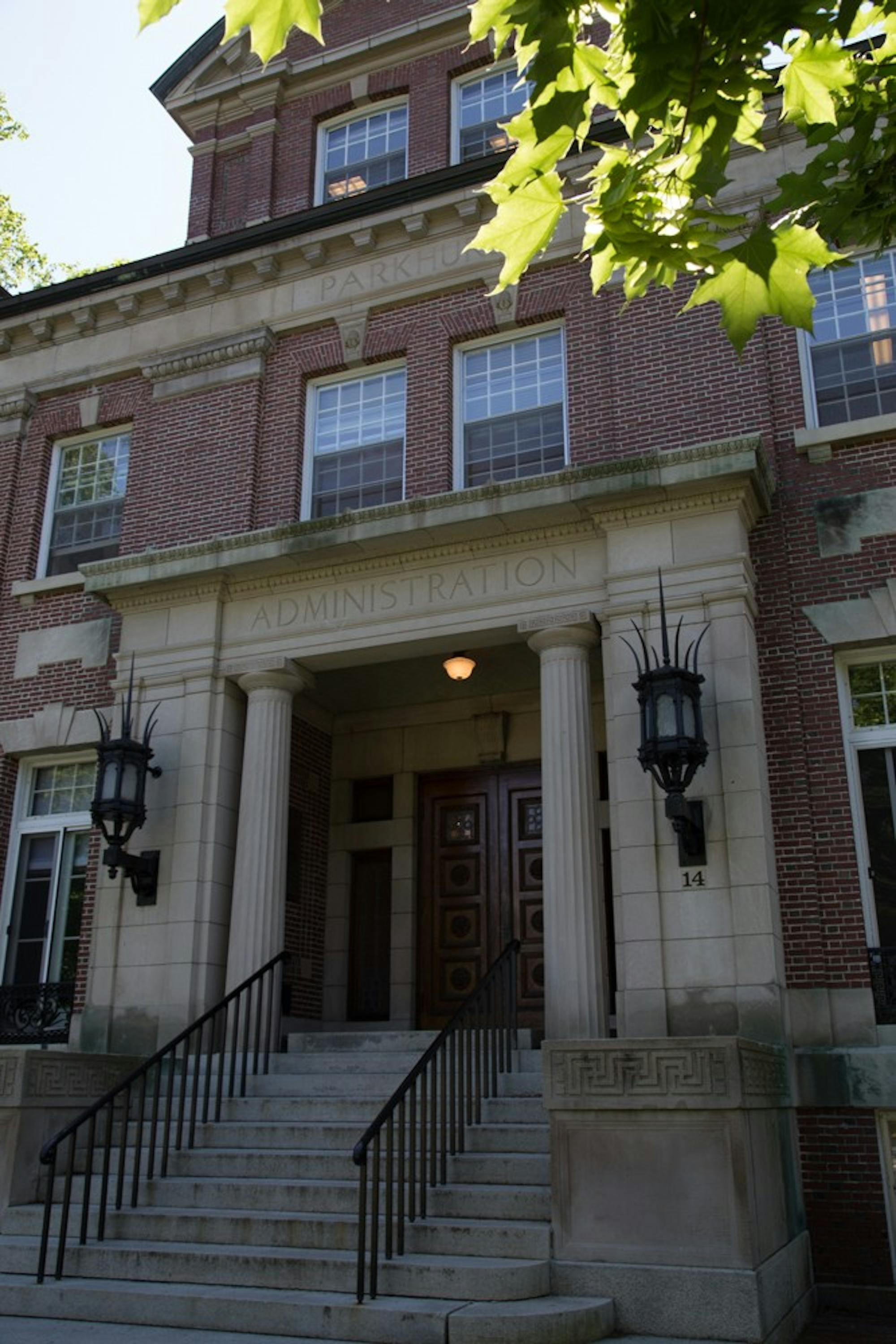On June 5, College President Phil Hanlon joined several university presidents in signing a letter in support of the Paris Climate Accord.
Hanlon’s action follows President Donald Trump’s declaration that the United States will withdraw from the Paris climate accord, an international commitment to slow the effects of rising temperatures.
“The withdrawal from the Paris climate accord will not weaken the resolve of America’s colleges and universities to help the country — and the world — meet our moral obligation to protect the planet for future generations,” Hanlon said in a June 5 College press release.
The group of presidents, representing what are colloquially known as the “Ivy Plus,” restated their dedication to adopting low-carbon energy and strengthening sustainability practices on their campuses.
“I don’t think the decision means much from a numbers perspective, but it will mean more if Trump pushes coal, cutting sustainable options and funding for renewable energy,” said Dan Korff-Korn ’19, a former member of campus organization Divest Dartmouth. “If it’s coupled with other stuff it will be tragic because America has been on course to reduce our emissions.”
He also noted that the long withdrawal process means it is uncertain whether the decision will be carried out.
Two years ago, Dartmouth and 317 other colleges and universities signed the American Campuses Act on the Climate Pledge in support of the Paris climate accord.
“Dartmouth remains as determined as ever to stay the course toward a sustainable future,” said College spokesperson Diana Lawrence in an email.
Before Trump’s decision to withdraw from the climate accord, Hanlon released a report entitled “Our Green Future: The Sustainability Road Map for Dartmouth” on Earth Day, outlining goals to reduce carbon emissions and transition to renewable energy. The Sustainability Task Force, which developed the report, aimed for the goals to align with the Paris agreement, co-chair of the Sustainability Task Force and environmental studies professor Andrew Friedland said.
The task force, made up of students, faculty members and administrators, convened several times to discuss various areas of sustainability, such as food and energy, and create goals and principles for the school to improve in those areas. The group presented the report to Hanlon, who after review, sent out the letter to the Dartmouth community outlining steps the school was planning to take.
The report focused on setting achievable and measurable goals. These goals included providing 50 percent of campus energy from renewable sources by 2025 and 80 percent by 2050.
“All of us on the task force were really excited about that letter,” said Catherine Rocchi ’19, a member of the task force and Divest Dartmouth. “The fact that he was including concrete numbers and dates was really important because that’s something we can actually hold him to.”
Dartmouth’s policies and goals for improving sustainability on campus, as outlined by the “Our Green Future” road map, will not change with Trump’s decision to withdraw from the Paris agreement, said Friedland.
Dartmouth’s decarbonization goal rate surpasses the rate the United States had originally committed to in the Paris agreement, environmental studies professor Anne Kapuscinski wrote in an email. Kapuscinski has also served on the Sustainability Task Force.
Rocchi said even though some communities and politicians feel that environmental regulations cause declines in coal jobs, the move to withdraw from the Paris agreement would not achieve Trump’s objectives to revitalize the coal industry.
“Stepping out from the Paris agreement and reducing restrictions is not going to actually make there be less coal production because it is just more economical to produce natural gas,” she said.
Rocchi added that she was hopeful because many states and cities are pledging to act in accordance with the Paris agreement and are continuing to innovate, pass statewide legislation and mitigate greenhouse gas emissions despite the national government’s position.
This is representative of a shift underway in America, Korff-Korn said; the U.S. government is not the dominant actor in the international scene because states are gaining more power.
“If cities refuse to join the Trump agenda and continue to put forth the anti-climate change regulation and reduce their own city emission, it will still have significant effects on the general situation, which is a good thing because that’s where most people live,” Korff-Korn said.
The U.S.’ continued participation in the United Nation’s commission on climate change is more important than in the Paris agreement because the commission sets rules, he added.
“Creating sustainable energy systems is a marathon, not a sprint,” director of the Arthur L. Irving Institute for Energy and Society Elizabeth Wilson wrote in an email statement. “We are talking about trillions of dollars of global infrastructure investment, linkages between critical sectors like food, transportation, water and energy and innovations in how societies make and use energy.”
Rocchi said that she believes Dartmouth will do good work academically through the Irving institute. She also complimented the College’s environmental studies department for the strength of its academics relating to sustainability.
While it is a good sign that the College is thinking strategically about climate change, its continued investments in fossil fuels are a sign that the College is still taking actions that profit the college financially, Korff-Korn said.
Rocchi also said tactics like fossil fuel divestment are important.
“I don’t think that any one strategy is the answer but rather Dartmouth should be doing everything in its power and try and take advantage of these strategies to combat climate change as an institution,” Rocchi added.




